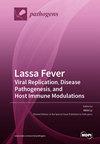Unlocking the Potential: Epstein-Barr Virus (EBV) in Gastric Cancer and Future Treatment Prospects, a Literature Review
IF 3.3
3区 医学
Q2 MICROBIOLOGY
引用次数: 0
Abstract
Gastric cancer (GC) is a complex disease with various etiologies. While Helicobacter pylori infection is still one of the leading risk factors for GC, increasing evidence suggests a link between GC and other infective agents such as Epstein Bar Virus (EBV). EBV-associated gastric cancer (EBVaGC) is now recognized as a distinct subgroup of GC, and the complex interactions between the virus and gastric mucosa may influence its development. A recent integrative analysis of the genome and proteome of GC tissues by The Cancer Genome Atlas project has identified EBVaGC as a specific subtype characterized by PIK3CA and ARID1A mutations, extensive DNA hyper-methylation, and activation of immune signaling pathways. These molecular characteristics are markers of the unique molecular profile of this subset of GC and are potential targets for therapy. This review aims to provide an overview of the current knowledge on EBVaGC. It will focus on the epidemiology, clinic-pathological features, and genetic characteristics of EBVaGC. Additionally, it will discuss recent data indicating the potential use of EBV infection as a predictive biomarker of response to chemotherapy and immune checkpoint inhibitors. The review also delves into potential therapeutic approaches for EBVaGC, including targeted therapies and adoptive immunotherapy, highlighting the promising potential of EBV as a therapeutic target.释放潜能:胃癌中的 Epstein-Barr 病毒 (EBV) 与未来治疗前景,文献综述
胃癌(GC)是一种病因复杂的疾病。虽然幽门螺杆菌感染仍是胃癌的主要风险因素之一,但越来越多的证据表明胃癌与其他感染性病原体(如爱泼斯坦巴氏病毒(EBV))有关。EBV 相关性胃癌(EBVaGC)现已被认为是胃癌的一个独特亚组,病毒与胃黏膜之间复杂的相互作用可能会影响胃癌的发展。最近,癌症基因组图谱(The Cancer Genome Atlas)项目对胃癌组织的基因组和蛋白质组进行了综合分析,发现 EBVaGC 是一种特殊的亚型,其特点是 PIK3CA 和 ARID1A 基因突变、广泛的 DNA 高甲基化以及免疫信号通路的激活。这些分子特征是该亚型 GC 独特分子特征的标志,也是潜在的治疗靶点。本综述旨在概述目前有关 EBVaGC 的知识。它将重点介绍 EBVaGC 的流行病学、临床病理特征和遗传特征。此外,它还将讨论最近的数据,这些数据表明 EBV 感染可能被用作化疗和免疫检查点抑制剂反应的预测性生物标志物。该综述还深入探讨了 EBVaGC 的潜在治疗方法,包括靶向疗法和采纳性免疫疗法,强调了 EBV 作为治疗靶点的巨大潜力。
本文章由计算机程序翻译,如有差异,请以英文原文为准。
求助全文
约1分钟内获得全文
求助全文
来源期刊

Pathogens
Medicine-Immunology and Allergy
CiteScore
6.40
自引率
8.10%
发文量
1285
审稿时长
17.75 days
期刊介绍:
Pathogens (ISSN 2076-0817) publishes reviews, regular research papers and short notes on all aspects of pathogens and pathogen-host interactions. There is no restriction on the length of the papers. Our aim is to encourage scientists to publish their experimental and theoretical research in as much detail as possible. Full experimental and/or methodical details must be provided for research articles.
文献相关原料
| 公司名称 | 产品信息 | 采购帮参考价格 |
|---|
 求助内容:
求助内容: 应助结果提醒方式:
应助结果提醒方式:


